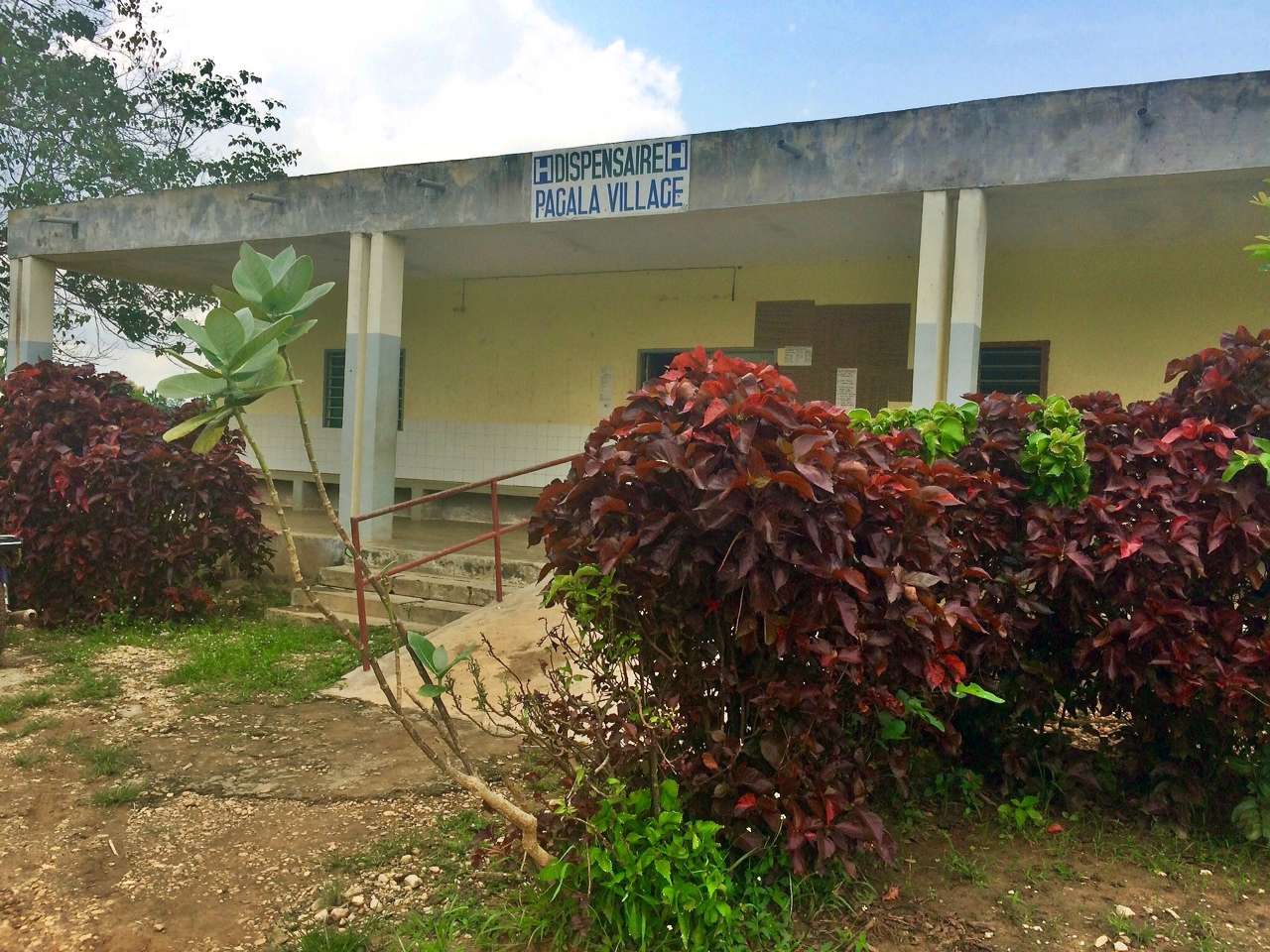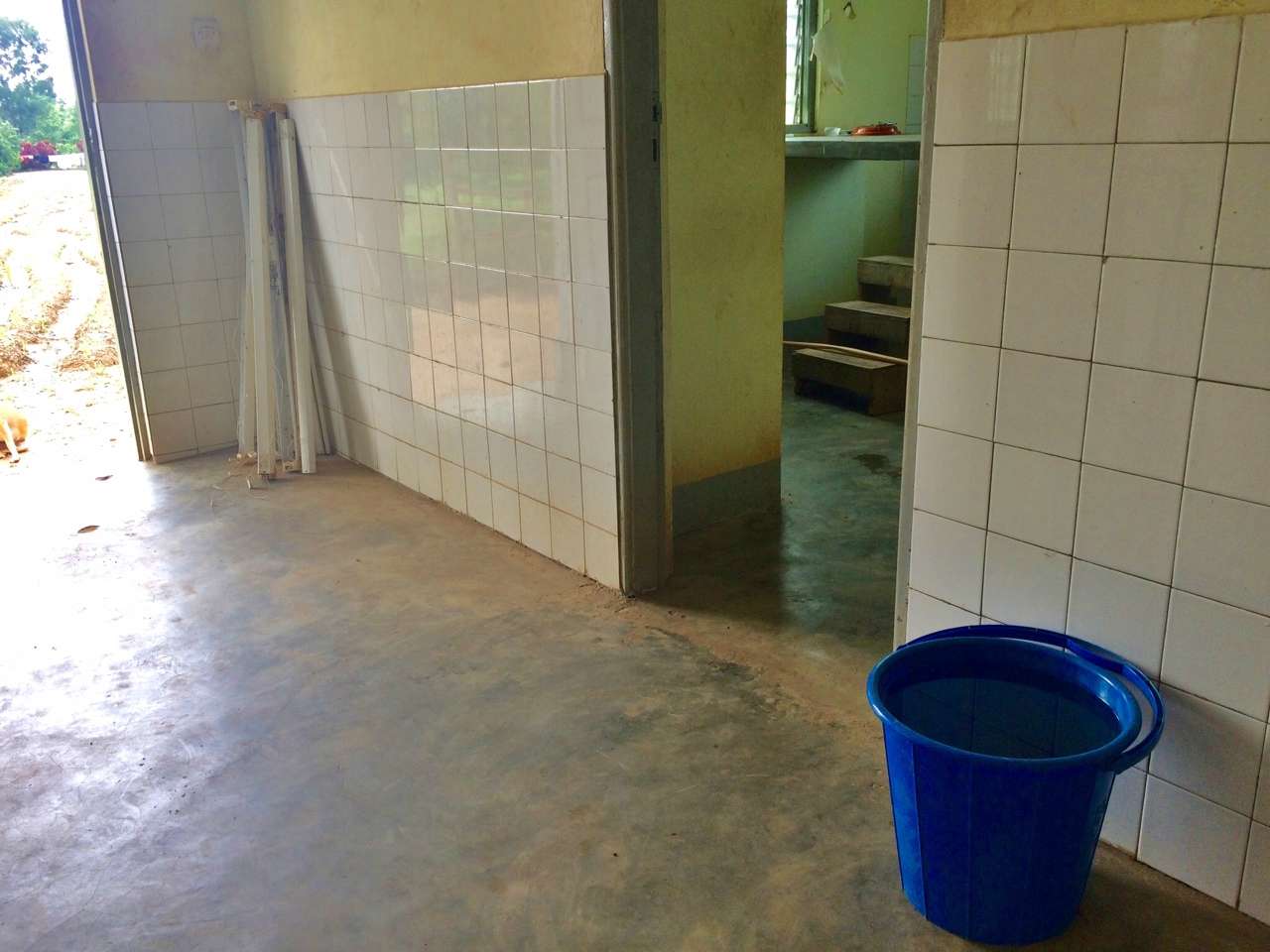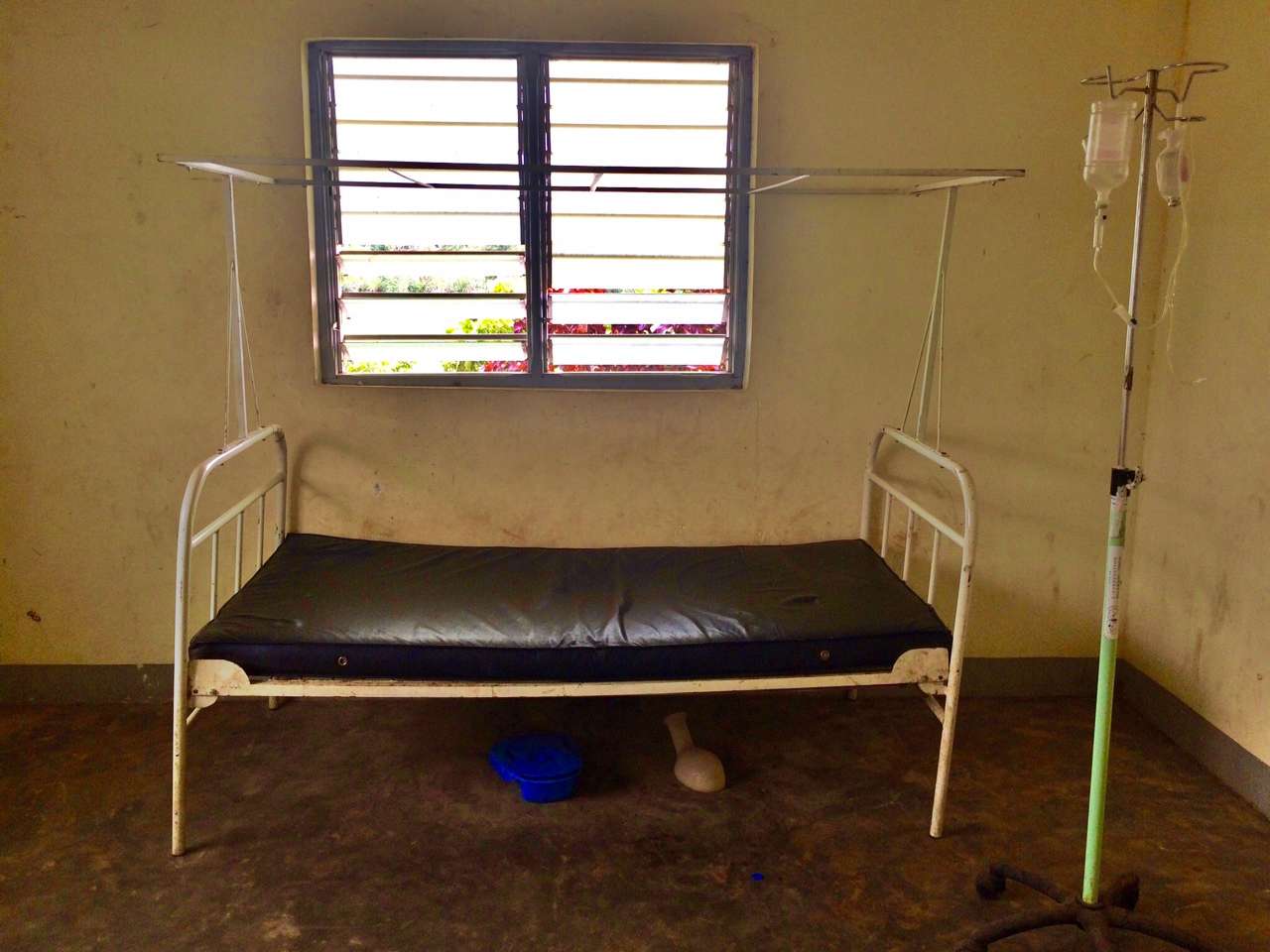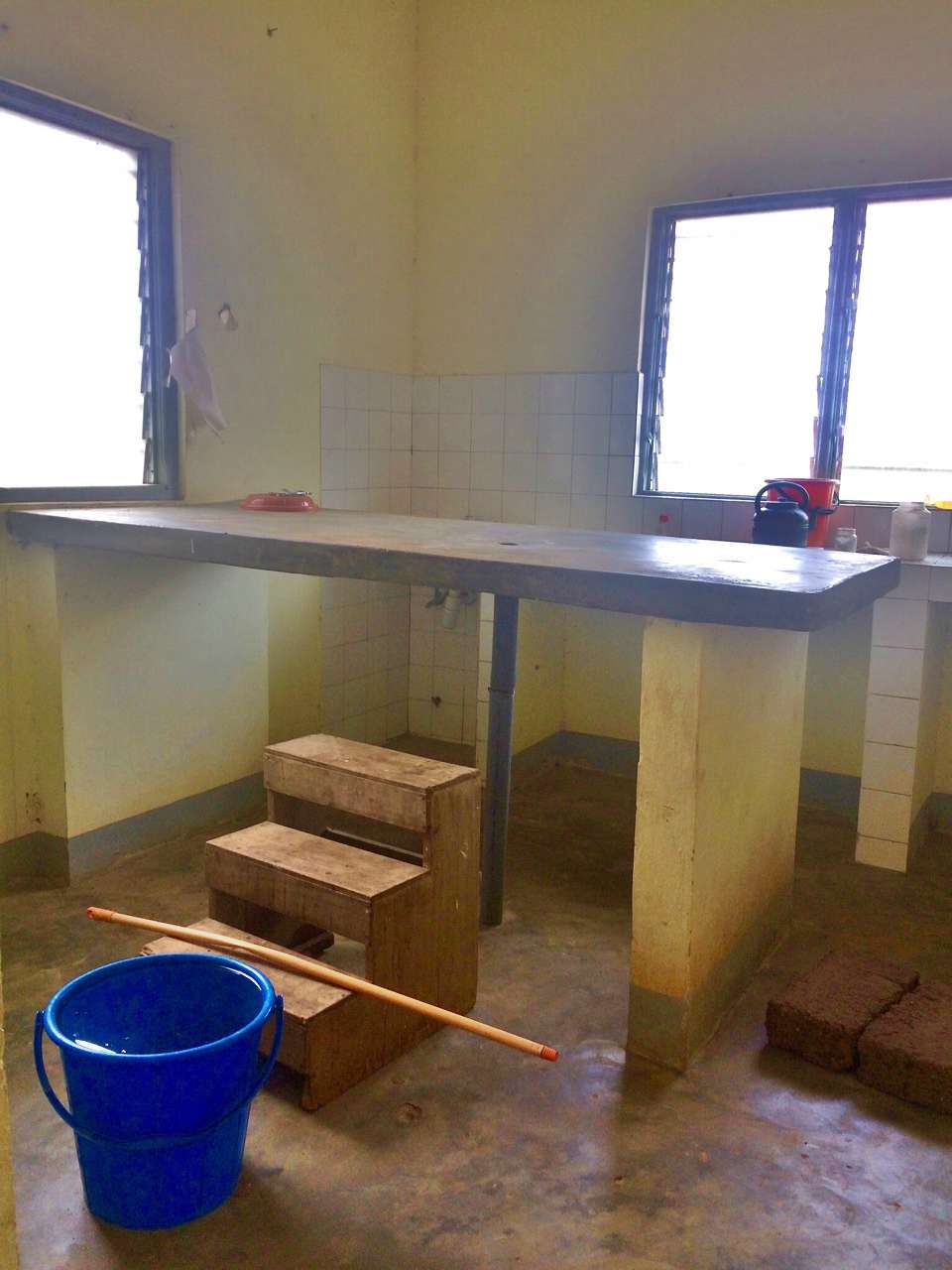This project is made possible through the partnership of WATER CHARITY and the NATIONAL PEACE CORPS ASSOCIATION. ![]()
 Location
Location
Pagala Village, Blitta Prefecture, Centrale Region, Togo
Community Description
Pagala Village is a small rural village nestled in the forests of Western Togo. The traditional ethnic group is Agnyanga and the majority of the village speaks a language of the same name. However, due to the large migrant population of the village, Ewe, the language of Southern Togo and French are spoken at the markets, in schools, and at large gatherings. French, the official language of Togo, is spoken mostly by adult men and school children.
There are three primary schools and one middle school located in Pagala Village. At the middle school level, male students outnumber female students at 3:1. The gender divide is less visible at the primary school level but presents nonetheless.
Approximately 95 percent of the population are subsistence farmers, growing primarily maize, and supplementing it with yams, manioc, gboma, sesame, and beans.
Located in the center of town is the village health clinic staffed by a nurse, a birth attendant, and a pharmacist. These three individuals are responsible for attending to the medical needs of the 4,000 people in the 8 villages that reside within the canton. Resources are few, but the health staff works tirelessly to accommodate every single person that comes into the health clinic seeking care. The village also has access to 11 Community Health Workers, all volunteers, who have assisted with vaccination campaigns and meningitis education after an outbreak this past February.
 Problem Addressed
Problem Addressed
In Togo, poverty is omnipresent as are the diseases that accompany it, such as cholera, dysentery, hepatitis, and typhoid. The primary cause of this is lack of access to clean, potable water. These same problems persist in Pagala Village.
The clinic does not have a reliable and accessible source of safe water to use in its delivery of services.
For women ready to give birth, farmers, motorcyclists who are injured, and children with open wounds, there is no source of water readily accessible for a clean environment, and the tools necessary for the safe delivery of a child are lacking. Patients must rely on friends and family members to fetch clean water from a pump or river, over a kilometer away.
There is no safe drinking water for hydration or for taking medications, and the existing water is not sufficient for effective hand washing by health providers, patients, and their visitors. This contributes to the cycle of disease that already runs rampant in the community due to a lack of latrines and safe feces disposal.
Project Description
This project is to provide running water for the clinic by drilling a borehole and installing an electric pump, storage tank, and piping system.
Water is expected to be reached at a depth of 10 meters by a team with experience in doing similar projects in the area. Piping and an electric pump will be installed to carry the water to an elevated 2,000-liter poly tank. Water will be piped on demand under pressure to 3 rehabilitated washing stations in the clinic, located in the birthing room, a consultation office, and the procedure room. There will be an additional tap located outside of the clinic to service local community water needs.
 The 12-meter tower on which the tank will be installed will consist of 4 legs, made from cement, gravel, and iron. The work on the tower will be done by experienced carpenters and welders.
The 12-meter tower on which the tank will be installed will consist of 4 legs, made from cement, gravel, and iron. The work on the tower will be done by experienced carpenters and welders.
The project is expected to take a month to complete.
In March 2016 a water committee was formed to rally community support for the installation of a water pump at the health clinic. Members of this committee met with a pump technician later that month to discuss the cost of installation and work out details for the budget. Moreover, this committee is to ensure community support for the installation of the pump and its maintenance of it for the years to come.
The PCV, along with members of the water committee, completed a canton-wide Water, Sanitation, and Hygiene Campaign to discuss the importance of having access to clean, safe drinking water and how to prevent the transmission of communicable diseases through improved hygiene and sanitation practices. These training focused on mothers with children under five years old and delivered transferrable skills such as ORS (Oral Rehydration Salt) preparation and proper handwashing techniques that can easily be followed in their own home.
The community will contribute 25% of the project cost, including for transportation of technicians and materials to the pump site as well as the outright cost of pump parts and manual labor by the skilled pump mechanics and other experienced workers to oversee village-contributed volunteers.
 Project Impact
Project Impact
3,891 in the 8 villages served by the clinic will benefit from this project.
Peace Corps Volunteer Directing Project
Katie Sonnefeldt
Monitoring and Maintenance
The water committee will ensure pump longevity by clearly dividing and outlining the responsibilities of its members. This will ensure that from the beginning, the community members in charge of overseeing pump installation and usage will know how to address problems, should they arise, including the implementation of a system for collecting funds to be kept aside for pump maintenance. This group will also monitor the pump’s function and attend to any repairs needed.
Comments
This project will vastly improve the quality of care that patients receive at the clinic. It will reduce infant mortality, prevent the spread of disease, and allow villagers to recover from illness and return to a productive life.
Let Girls Learn
Although this is not a Peace Corps Let Girls Learn project, it contains the same elements directed toward improving the opportunities for girls to remain in school, and we categorize it as Let Girls Learn +.
The installation of an additional water pump in the village will provide clean water for an entire quarter whose closest water source is a dirty stream. Since women and girls usually bear the responsibility of retrieving water, this project will accrue most directly to their benefit.
Additionally, as women are more likely to accompany and take care of a sick family member, water at the health clinic will allow for effective handwashing and prevent disease transmission amongst these caregivers.
This project has been funded by an anonymous donor. If you would like to see more projects like this one, please donate to Water Charity.